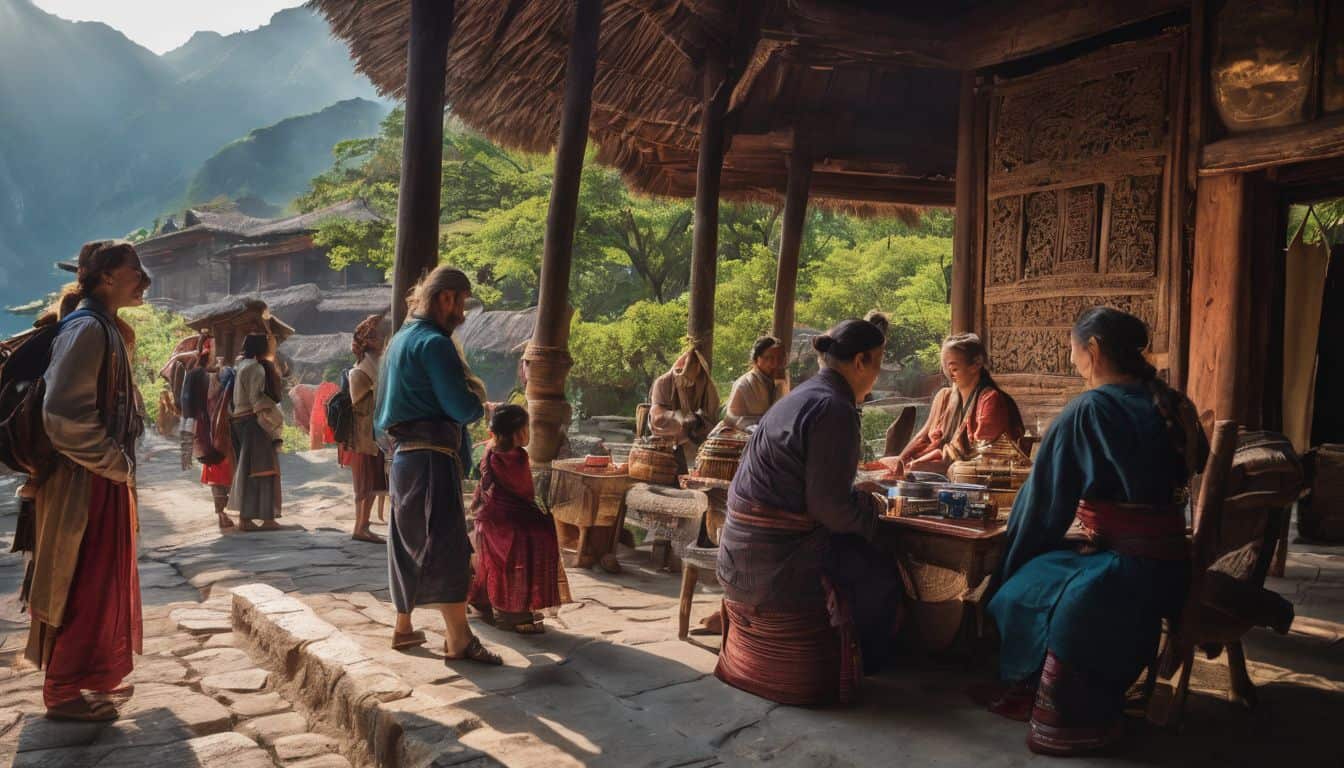In the world of modern backpacking, cultural awareness and respect are as essential as your gear. Respecting local customs and fellow travelers enhances your backpacking experience and fosters positive interactions. It’s not just about being polite; it’s about being a responsible global citizen. This guide will help you navigate the complexities of cultural etiquette while enjoying your backpacking adventures.
Trail Etiquette
Greetings and Interactions
Acknowledge fellow hikers with a friendly nod or greeting. When passing on narrow trails, yield to uphill hikers and larger groups. This courtesy not only promotes a positive trail atmosphere but also enhances safety. A simple “hello” or “enjoy your hike” can go a long way in fostering a sense of community on the trail. Remember, uphill hikers often have a more limited field of vision and require more energy, so giving them the right of way is both courteous and practical.
Noise Management
Keep conversations at a reasonable volume and use headphones for music. Respect quiet hours in campsites, typically from sunset to sunrise. Many people seek the outdoors for peace and tranquility, so being mindful of noise levels is crucial. If you’re hiking in a group, be aware of how far your voices carry. In campsites, keep voices low after dark and consider using red light headlamps to minimize disturbance to others who may be stargazing or trying to sleep.

Leave No Trace Principles
Practice proper waste disposal and minimize your impact on the environment. Pack out what you pack in, and leave natural objects where you find them. This includes properly disposing of human waste, using established fire rings, and avoiding the creation of new campsites or trails. Even biodegradable items like fruit peels should be packed out, as they can take years to decompose in some environments and attract wildlife. Remember, the goal is to leave the area as you found it.
Cultural Considerations When Backpacking Abroad
Pre-Trip Research
Before your trip, research local customs and traditions. Learn basic phrases in the local language to show respect and facilitate communication. This preparation can include understanding local greetings, taboos, and social norms. Knowing a few key phrases like “please,” “thank you,” and “excuse me” in the local language can open doors and show your genuine interest in the culture. Research local holidays or festivals that might affect your travel plans or provide unique cultural experiences.
Appropriate Dress
Respect local dress codes, especially in conservative areas. Be prepared to cover up when visiting religious sites or rural communities. This might mean carrying a lightweight scarf or long-sleeved shirt to cover shoulders or knees when necessary. In some cultures, certain colors or styles of clothing may have specific meanings or be reserved for special occasions. Being aware of and respecting these norms shows consideration for local sensibilities.
Photography Etiquette
Always ask permission before photographing people. Be mindful of restrictions at sacred sites and during ceremonies. Some cultures believe that photographs capture a part of the soul, while others may simply value their privacy. When photographing in markets or public spaces, be discreet and respectful. In sacred places, check if photography is allowed, and never use flash photography around ancient artifacts or artwork.
Accommodation and Dining Etiquette
Hostel and Shared Living Spaces
Respect shared facilities and quiet hours in hostels. Keep your area clean and be considerate of others’ space. In shared accommodations, be mindful of your belongings and use lockers when available. Avoid monopolizing common areas and clean up after yourself in shared kitchens. Remember that hostels often house travelers from diverse backgrounds, so be open to cultural exchanges while respecting personal boundaries.
Local Dining Customs
Learn basic table manners for different cultures. Be open to trying local cuisines, but communicate dietary restrictions respectfully. Research common dining practices before your trip, such as using specific utensils or eating with your hands. When in doubt, observe locals and follow their lead. If you have dietary restrictions, learn how to communicate these clearly in the local language to avoid misunderstandings.
Wildlife and Nature Respect
Observe animals from a safe distance and stay on designated trails to protect ecosystems. Be aware that wildlife behavior can change with seasons. In spring and fall, animals may be more active due to mating or preparing for winter. Always store food properly to avoid attracting wildlife to your campsite, using bear canisters or hanging food bags when necessary.
Communication and Language
Non-Verbal Communication
Be aware of gestures and body language that may have different meanings in other cultures. Research common gestures in your destination to avoid unintentional offense. Remember that personal space norms can vary widely between cultures.
Language Barriers
Use translation apps or phrasebooks to facilitate communication. Show appreciation for any attempts to bridge the language gap. When backpacking in different seasons, learn season-specific vocabulary related to weather conditions or seasonal activities. This can be particularly helpful when asking locals about trail conditions or seasonal hazards.
Understanding backpacking nutrition is crucial for maintaining energy and health during your travels. Adjust your diet based on the season and activity level. In colder weather, focus on high-calorie, warming foods. In warmer seasons, prioritize hydration and electrolyte balance. Always pack extra food for emergencies, especially when backpacking in more challenging seasonal conditions.
Conclusion
Embracing cultural diversity and practicing responsible travel enriches your backpacking experience. By following these etiquette guidelines, you’ll not only show respect for the places and people you encounter but also contribute to a more positive and sustainable travel culture.
Remember, every interaction is an opportunity to learn and grow. Approach your backpacking adventures with an open mind, a respectful attitude, and a willingness to adapt to new customs and environments. Happy trails and cultural discoveries await!

Leave a Reply